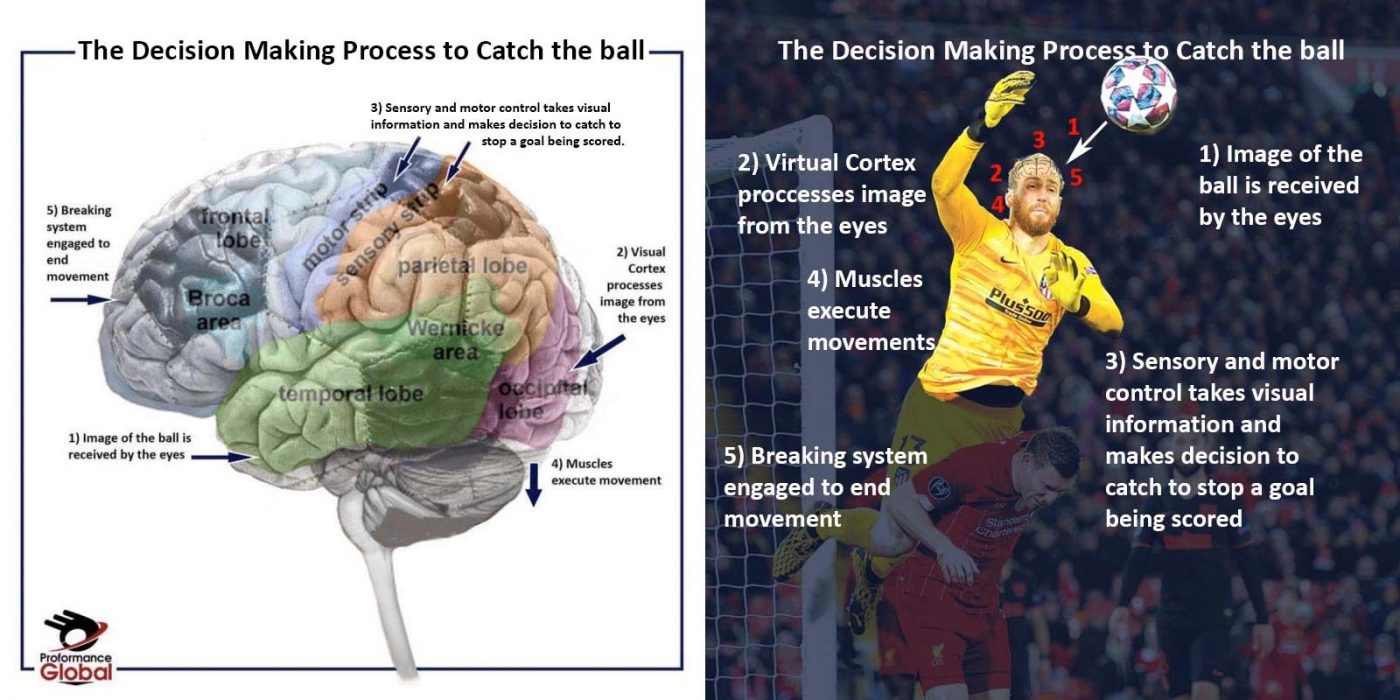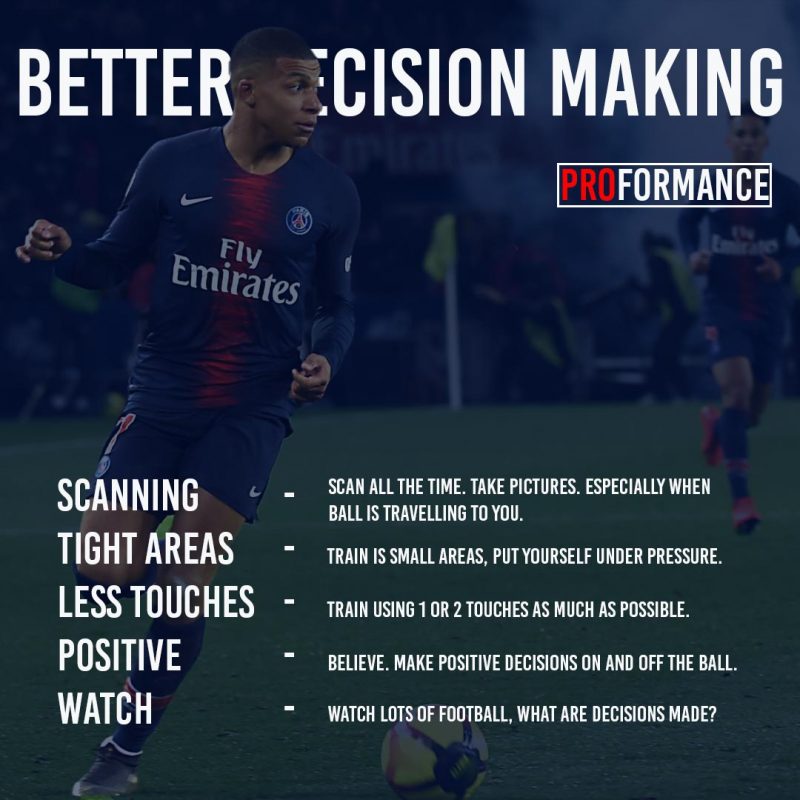What a save keeper! ‘Look at his natural instinct to make saves’. Is it that simple? I really enjoyed writing a blog post and making some social content on understanding the decision making process to pass. I think if you play or if you coach, even if you scout, it’s great to understand the process behind what players are doing on the field.
We have already shown in this blog that football players (or babies, children, etc..) learn from feedback and we want to empower players with knowledge to help them develop. The process to making a decision to pass the ball happens in just 0.439 seconds and that is the same for a goalkeeper catching the ball or making a save.

We have adapted our ‘brain process to make a pass’ image for goalkeepers. The process is exactly the same and those decisions will be effected by our emotional and rational responses. Too many options can delay decision making so our experiences and training helps the key decision become clearer.
As a player you will feel frustrated that a mistake or a slow decision has led to a goal being conceded but been fair with yourself, all this happens in a fraction of a second, it’s no wonder we make mistakes, we are all human after all.
You may be a parent or coach of a young keeper – next time a mistake is made – take into account all this action that is required to make a decision, show empathy and help the player make better decisions in the future.
We can help our decision making process by making quick decisions a habit, start to notice the decisions you are making and this will help the brain reconcile them, you will be able to then access them from your memory.

Better Decisions
To help improve your decision making you can do the following things;
Scanning – So in general as a keeper you wouldn’t be scanning over your shoulders, but you would be scanning around the field, where are players moving to, if you make a save, where will you direct the ball? You need to know where all the players are on the field.
Play in Tight Areas – Play under pressure. Don’t train easy, make it a challenge, put yourself under as much pressure as possible so that moments in a match are not a surprise, they are rehearsed.
Take less touches – Playing quickly is important for a keeper. Playing off one or two touches is important. Using the example above, catching the ball or making a save, you still need to act quickly, so in training try to react and act quickly.
Be positive – Vital for you as a keeper or an outfield player, make decisions, and stick to them. Be brave!
Watch – There are so many really good examples out there playing at the top level. Watch them, how do they act? I love to see Oblak, Alisson, Ederson, brilliant!! How do the position themselves and look at how quickly they make their decisions.
The image was designed for all football players and it is equally relevant to goalkeepers. For a keeper you might train slightly differently but it’s important to recognise the process are the same.
Nobody is perfect, but there is a way to continue to develop, and be the best version of you possible.



